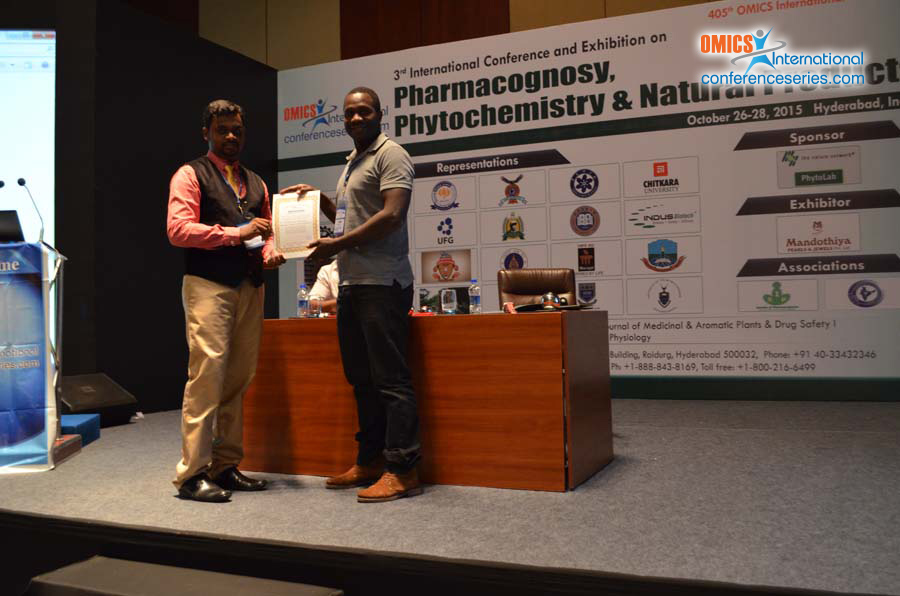
B Janarthanam
Poonga Biotech Research Centre, India
Title: Studies on phytochemical analysis, proximate analysis and antioxidant activity of Cucumis melo seed extract
Biography
Biography: B Janarthanam
Abstract
The present study was performed to investigate the phytochemical screening, proximate composition, total phenol, total flavonoid content and DPPH assay of seed extracts of Cucumis melo. Phytochemical screening of various extracts such as aqueous, ethanol, chloroform, acetone and petroleum ether of seed extracts, revealed the presence of tannins, saponins, phenols, flavonoids, cardiac glycosides, terpenoids, alkaloids and steroids. Butylated Hydroxy Toluene (BHT), Gallic acid (GA) and Quercetin (Q) were taken as standard in case of antioxidant activity, phenol and flavonoid content respectively. Total phenol and flavonoid contents were quantitatively estimated. Total phenolic content was estimated by Folin–Ciocalteau method and flavonoid content measured by Aluminum chloride method. Proximate analysis such as total protein, carbohydrate, ash, crude fibre and moisture contents were carried out following standard methods. The seed extracts were evaluated for antioxidant activities by DPPH (1,1-diphenyl-2-picrylhydrazyl) radical scavenging activity. Among five different solvents used, maximum antioxidant activity was found in aqueous extract (73.2%) followed by others. The total phenol and flavonoid content in seed extract were found to be 23.32 mg gallic acid equivalents (GAE)/g and 63.1 mg Quercetin Equivalent (QE)/g, respectively. The aqueous extracts from dry powdered seed of Cucumis melo had superior level of antioxidant activity. The powerful antioxidant effect is attributed to the greater amount of phenols and flavonoids compound in the ethanolic peel extracts of Cucumis melo.


